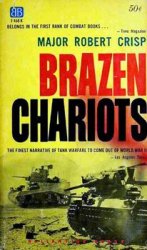The Ponca, a Siouan people, share ancestry with the KAW, OMAHA, OSAGE, and QUAPAW. Formerly living along the Ohio valley, their ancestors eventually migrated westward across the Mississippi River onto the eastern plains. Various groups then separated under different chiefs. The ancestors of Ponca and Omaha lived together in what now is southern Minnesota near Pipestone Quarry, a site famous for the catlinite stone used to make pipes. But they too eventually separated. The Omaha ended up settling on the Missouri River in what is now northeastern Nebraska. But the Ponca built their villages farther to the northwest at the mouth of the Niobrara River, on both sides of what has become the boundary line between Nebraska and South Dakota.
The name Ponca, pronounced PONG-kuh, is thought to mean “sacred head.” The tribe is classified as part of the Great Plains Culture Area because they hunted buffalo on the plains, especially after many gained use of the horse (see plains Indians). But they also retained many of the traits of more eastern Indians, including permanent villages and agriculture (see PRAIRIE INDIANS).
In the 19th century, the Ponca were involved in an incident that had a positive, long-term effect on the rights of Native Americans. In 1876, Congress passed an act to relocate the Ponca from their homeland in Nebraska to the Indian Territory (present-day Oklahoma). Tribal members were forced to move the following year. They suffered greatly during the first years after removal. Their new land was difficult to farm. There was little grass to feed livestock. Winters were fierce. Hunger and disease took their toll, killing about a quarter of the tribe.
One of those sick was the son of Chief Standing Bear. Before dying, the youth reportedly made his father promise to bury him with his sister by the Swift Running Water of their homeland—along the Niobrara River in Nebraska. When the boy died, Standing Bear loaded the body in a box on a wagon drawn by two feeble horses, then headed north. Sixty-five members of his clan went with him on the long funeral procession.
Settlers living in Kansas and Nebraska were alarmed to see the Ponca crossing through lands that by now were supposed to be cleared of all Indians. They notified the army of a potential Indian uprising. Standing Bear and his people reached their earlier homeland but were soon arrested by a cavalry detachment and taken to Omaha as prisoners.
The Ponca had always been peaceful in their relations with non-Indians. On learning of their real purpose in returning to Nebraska, some whites reacted with sympathy. General George Crook, who had led campaigns against many other tribes, expressed his support. Two lawyers, John Webster and Andrew Poppleton, offered their services to the prisoners free of charge.
At the trial in 1879, Judge Elmer Dundy ruled in favor of the Indians, saying that they had inalienable rights under the law like all people, and that the government could not forcibly restrain them from returning to their original homeland. In 1879—80, Standing Bear accompanied the Omaha reformer Susette La Flesche on a tour of eastern cities to lecture on behalf of the Ponca cause. Because of public sympathy for Standing Bear’s band, the federal government granted them a reservation along the Niobrara in 1880.
A precedent was established. In this case, Native Americans were shown to be equal under the law. Nevertheless, it would take many more years for all Native Americans to be treated fairly by government officials. For example, other Ponca in the Indian Territory— Standing Bear’s brother Big Snake being one of them— were not allowed to join their relatives in the north for many years. But at least Judge Dundy’s decision was a step in the right direction on the long road to equality for Native Americans.
Today, Ponca live in both locations, in Oklahoma and in Nebraska. Lands in both states have been allotted to individual tribe members during the Allotment period. Lands in Oklahoma now are designated as a federal trust area.
Ponca woman's saddle

Modern Ponca have worked peacefully for Native rights, as Chief Standing Bear did during the 19th century. In 1961, Indian leaders from 67 tribes gathered in Chicago for the American Indian Chicago Conference (also called the American Indian Charter Convention). The leaders issued a Declaration of Indian Purpose, calling for greater Native involvement in the decision-making process in all federal and state programs affecting tribes.
Yet some of the younger tribal delegates did not think their tribal elders had gone far enough in making a stand for Indian rights. Soon afterward, this group, led by a Ponca named Clyde Warrior and Melvin Thom of the PAIUTE, founded the National Indian Youth Council (NIYC) in New Mexico. The NIYC has since been involved in many Native American causes, such as sponsoring a number of “fish-ins” along rivers in the state of Washington to make a case for Indian fishing rights.
Among current issues concerning the Ponca is a dump site neighboring ancestral burial grounds in northern Oklahoma.




 World History
World History









